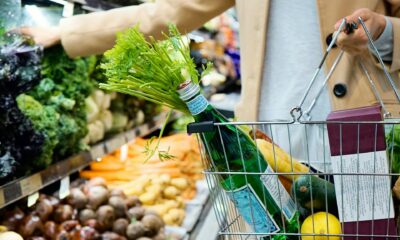News
A Nation Hungry: The Growing Cry to End Soaring Food Prices in South Africa

Across South Africa, more and more families are facing a painful daily question: What will we eat today, if anything at all? Grocery bills have spiraled beyond what most low-income households can afford. Now, with hunger settling into millions of homes and malnutrition threatening children’s futures, a national petition is calling for urgent action.
The campaign, spearheaded by United Against Hunger (UAH), is a grassroots response to a food affordability crisis that many say has gone too far for too long. Their goal is to collect 100,000 signatures—each one a cry for help and a call for justice.
Hunger knocking on every door
UAH is not just gathering names online. The movement is mobilising on the ground, going door-to-door in communities across KwaZulu-Natal. Volunteers, including members of the Abahlali baseMjondolo movement, are having heartfelt conversations with residents, explaining the campaign’s mission and gathering support from those who know hunger all too well.
“Families are starving. Children are going without food,” said Mark Heywood, the group’s leader. “This petition is about saying enough is enough.”
What started as part of a broader World Hunger campaign has now become an urgent national issue, fueled by the grim findings of the 2024 General Household Survey.
Numbers that hit home
That report revealed a disturbing reality: 14 million South Africans—almost a quarter of all households—face hunger every single day. Provinces like the Northern Cape, Eastern Cape, Mpumalanga, and KwaZulu-Natal are bearing the brunt, with food insecurity numbers soaring above 30 percent in some areas.
And children? They’re among the hardest hit. Nearly one in three children under the age of five suffers from malnutrition so severe that it stunts their growth. It’s not just physical—it affects their brain development, ability to learn, and future job prospects.
Heywood pointed to one major cause: the rising cost of essential foods and the unchecked profits of large food retailers. “These companies are making billions. They can afford to lower prices. The question is, will they?”
Rights, not privileges
In a powerful statement, UAH has reminded both government and private sector players that access to food is a constitutional right in South Africa—not a luxury.
“Hunger is a human rights violation,” Heywood said. “We grow enough food to feed our people. The issue is affordability and access.”
To push this message forward, UAH has written directly to the CEO of one of the country’s biggest food retailers, urging the company to reduce prices on essential items, especially those critical for child development. So far, the response has been slow, but the pressure is building.
Real solutions, not quick fixes
The campaign isn’t just pointing fingers. UAH is proposing practical interventions, including:
-
Introducing laws to prevent food waste
-
Reducing the cost of staple foods
-
Creating a National Food Security and Nutrition Council
-
Finalising a National Plan on Food Security and Nutrition that listens to real community needs
These are not pipe dreams—they’re urgent necessities, and the sooner government and industry act, the better.
Calling for food justice
Mervyn Abrahams from the Pietermaritzburg Economic Justice and Dignity Group has echoed the concerns raised by UAH. His organisation has been tracking food prices through its Household Affordability Index, showing that costs continue to rise monthly and yearly—well beyond inflation and income levels.
“We’ve seen families having to choose between food and electricity, or school shoes and a loaf of bread,” Abrahams said. “When profit is the only priority, human dignity suffers.”
He added that transparency in the food supply chain is long overdue, and that business leaders must stop hiding behind spreadsheets while communities suffer.
Where you come in
This isn’t just a story about statistics or petitions. It’s about real people. Mothers skipping meals so their children can eat. Grandparents going to bed hungry. Young kids missing school because they’re too weak to walk.
You can be part of the solution. Sign the petition. Share it. Speak up. Demand that both government and big retailers treat food as a basic right, not a business strategy.
Because in a country where food is grown in abundance, no one should be starving.
{Source: IOL}
Follow Joburg ETC on Facebook, Twitter , TikTok and Instagram
For more News in Johannesburg, visit joburgetc.com



























